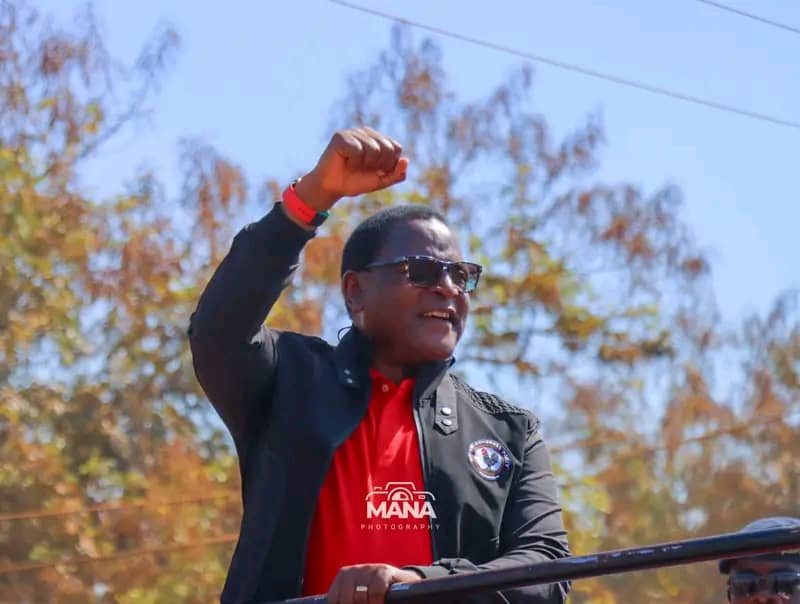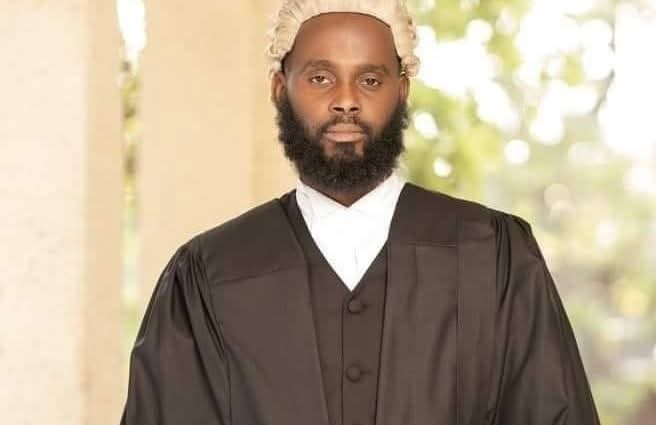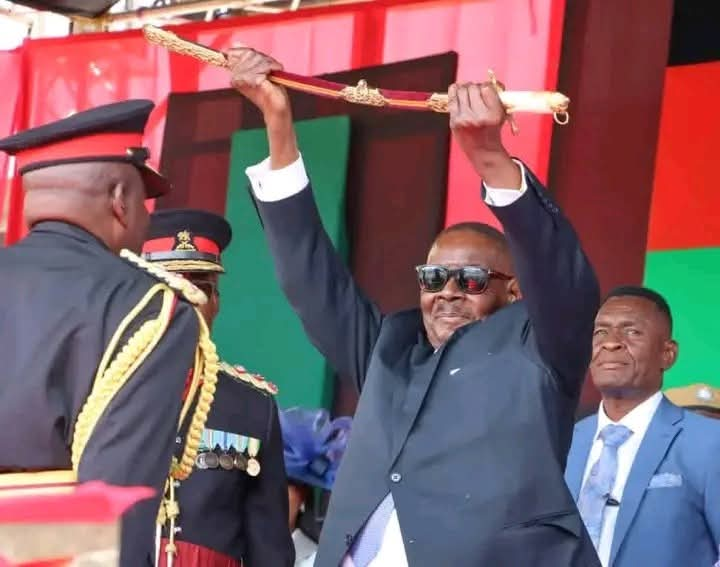By Burnett Munthali
President Dr. Lazarus McCarthy Chakwera has reaffirmed his administration’s commitment to promoting peace, unity, and development as he continues his campaign trail ahead of the September elections.
On Wednesday, the president addressed supporters at Phirilanjuzi Trading Centre after an earlier stop at Chigwiri, where he assured residents that his government remains committed to providing infrastructure and essential services.
He highlighted key sectors such as agriculture, mining, and education as priority areas that will continue to receive government investment.
In his remarks, Dr. Chakwera appealed for peace and unity during the campaign period, urging Malawians to shun violence and instead make their voices heard through the ballot box.
“I would like to appeal to everyone to promote peace and unity by avoiding violence during this campaign period and make noise on the ballot paper by voting for MCP, the party for all,” he told the gathering.
The president also called on residents of Phirilanjuzi to come out in large numbers and vote wisely on September 16, stressing that government remains attentive to the developmental needs of their communities.
Senior Chief Chimwankhunda, who officially welcomed Dr. Chakwera, expressed gratitude for the ongoing government projects in Lilongwe.
The chief further assured the president that community members are fully registered and prepared to participate in the upcoming elections.
He also made an appeal for the construction of a tarmac road to facilitate easier transportation, noting that most residents rely on small-scale businesses for their livelihoods.
In addition, he acknowledged the positive impact of the National Economic Empowerment Fund (NEEF), which has been supporting local entrepreneurs.
MCP parliamentary candidate for the area, Peter Dimba, applauded the president’s engagement with the people and praised his administration for implementing tangible development initiatives.
Dimba pointed to recent projects including the construction of a hospital, the installation of water taps, the building of a new police station, and the erection of additional school blocks to expand access to quality education.
He also commended the president for selecting Engineer Vitumbiko Mumbo as his running mate, describing it as a strong and strategic choice for the party’s continued leadership.
Dimba pledged unwavering support to ensure the Malawi Congress Party secures another mandate, arguing that continuity in leadership is key to sustaining ongoing development.
Dr. Chakwera’s stop in Phirilanjuzi is part of a broader campaign tour that will also take him to Ming’ongo, Tsanthe, Kasiya, Malembo, Tsanama, and BaNg’ombe Trading Centres.
Throughout the tour, he has consistently emphasized that development in Malawi depends on citizen participation in the electoral process.
His engagements are also designed to reinforce messages of peace and unity, while showcasing the government’s achievements in various sectors.
As the president concluded his address, he encouraged voters to protect the democratic process, use their votes to secure Malawi’s future, and maintain harmony throughout the campaign period.
Conclusion
President Chakwera’s campaign message in Lilongwe weaves together two central themes: peace and progress. His insistence on unity reflects an awareness of Malawi’s political fragility, while his emphasis on infrastructure and social services highlights the MCP’s development agenda. The challenge, however, will be convincing voters that promises of continued growth can withstand the country’s economic pressures. Whether Malawians interpret these pledges as genuine commitments or political slogans will be decisive in shaping the outcome of the September 16 elections.
Yet beneath the optimistic rhetoric lies a sobering reality. Malawi’s economy is struggling under the weight of ballooning public debt, a weakened kwacha, and double-digit inflation that continues to erode household incomes. Pension arrears remain unpaid, civil servants are demanding salary adjustments, and basic services in health and education are under pressure.
This raises uncomfortable questions: how realistic is it for Chakwera to promise more infrastructure projects and expanded social services when the fiscal space is so tight? Without addressing the fundamental economic weaknesses, pledges of “continued development” risk sounding like recycled campaign slogans rather than deliverable policy.
For many voters, particularly in rural Malawi, tangible results matter more than speeches. If roads remain unbuilt, hospitals under-equipped, and livelihoods unprotected against rising prices, even the loudest calls for peace and unity may ring hollow.
Chakwera’s challenge, therefore, is not just to inspire hope on the campaign trail but to convince Malawians that his administration has the credibility, discipline, and capacity to deliver in the face of mounting economic hardship. Otherwise, his vision for unity and progress risks being overshadowed by the stubborn realities of a fragile economy.
President Chakwera’s pledges of continued development and national unity clash with Malawi’s harsh economic realities.
As of May 2025, inflation remains high at 27.7%, eroding the purchasing power of ordinary Malawians despite slight improvements earlier in the year.
Meanwhile, total public debt has ballooned to K16.19 trillion, equivalent to 86.4% of GDP, with interest payments alone consuming nearly 7% of national revenue.
The fiscal deficit stood at 10.1% of GDP in 2024/25, worsened by election-related spending and underperforming revenues, leaving the government limited room to fund new projects.
Compounding the challenge, Malawi’s Extended Credit Facility with the IMF ended prematurely in May 2025 after only $35 million of a $175 million arrangement was disbursed, reflecting stalled reforms and weak fiscal management.
In this context, Chakwera’s promises risk appearing more like campaign rhetoric than achievable policy.
Without concrete strategies to tackle inflation, rein in public debt, and restore fiscal discipline, claims of “continued development” may ring hollow to Malawians struggling with daily economic hardships.
For voters, the urgent need is not just a vision for the future, but tangible actions that address the financial and service delivery crises of today.




